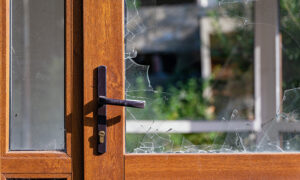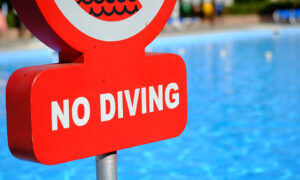Renting out HOA amenities has its fair share of pros and cons. However, does an HOA board have the authority to do this? The issue has many moving parts, and a competent board should review all aspects before deciding.
The Benefits of Renting Out HOA Amenities
The most obvious benefit of renting out an HOA’s amenities is the added revenue. Association boards can supplement the community’s income by opening clubhouses, pools, tennis courts, and golf courses to the general public.
Economic factors, such as inflation, the rising cost of goods, and increased wages, affect associations’ finances nationwide. Services and materials cost more now, and insurance premiums show no signs of dipping. With the way things are, HOAs are seeking ways to earn more money without raising dues or levying special assessments.
An HOA primarily relies on homeowners for revenue. By renting out its amenities, an HOA can turn to members of the public for additional income. This gives homeowners room to breathe, as they don’t have to shoulder the burden of rising expenses.
The Disadvantages of HOA Renting Out Amenities
 While added revenue is a significant benefit of renting out HOA amenities, several equally influential disadvantages exist. These disadvantages are similar to the ones that come with permitting short-term rentals within the community.
While added revenue is a significant benefit of renting out HOA amenities, several equally influential disadvantages exist. These disadvantages are similar to the ones that come with permitting short-term rentals within the community.
Renting out an HOA’s amenities makes it more vulnerable to liability. When more people are around, there is a greater risk of accidents, harm, and injury. In some cases, the HOA may find itself liable for such risks.
Furthermore, an HOA should expect excessive noise and increased traffic, as well as a higher chance of property damage. Guests are not as careful as residents because they are not stakeholders, so they may not exercise caution when handling HOA property.
Is Renting Out HOA Amenities Allowed?
Whether or not an HOA board can rent out amenities depends on the association’s governing documents. The CC&Rs and bylaws should contain specific guidelines for this kind of decision.
While renting out amenities can give HOAs more revenue, it also comes with more risks. As such, an HOA that ultimately permits public use of amenities should have rules in place. One way to mitigate the risks involved is to allow residents to rent out HOA amenities for parties, gatherings, etc.
Policy for HOA Facilities for Rent
If an HOA board does decide to allow amenity rentals, it is critical to develop a policy to regulate them. As always, board members should ask an attorney to review the HOA’s governing documents and policy before implementing it. This will help keep the association out of legal trouble.
Here are the things an amenity rental policy should include.
1. Limit Types of Activities
One of the first things an HOA board should do is limit the activities a renter can do. For example, an HOA may only permit using amenities for social and religious gatherings while prohibiting commercial activities and political campaigns.
Of course, some events may be more contentious than others. Homeowners may push back on this part of the policy because they want to use amenities freely. Residents may also have differing views and opinions, leading to the likelihood of disputes and conflicts.
Renting out HOA amenities may also subject the association to the Americans With Disabilities Act, which applies mainly to public accommodations. Due to the potential legal repercussions involved, HOA boards should consult with an attorney when crafting this policy portion.
2. Have a Rental Agreement
 Rental agreements play a crucial role in safeguarding the interests of all parties involved. They provide renters essential information such as rental rates, usage parameters, and other pertinent details. Additionally, for the HOA, these agreements serve as liability protection.
Rental agreements play a crucial role in safeguarding the interests of all parties involved. They provide renters essential information such as rental rates, usage parameters, and other pertinent details. Additionally, for the HOA, these agreements serve as liability protection.
Accidents can occur anywhere, including within an HOA amenity. To mitigate potential liability risks, it’s advisable to have users sign a liability waiver, releasing the association from responsibility in the event of accidents or injuries. Moreover, for events involving pool usage, an HOA may want to mandate the presence of a lifeguard to ensure safety.
3. Charge a Deposit
Renting out HOA amenities to the general public, or even residents, comes with a risk of property damage. People may be careless when using the amenity, resulting in potentially substantial damages and repairs. The HOA should consider charging a security deposit to mitigate this risk and ensure protection. This deposit serves as a financial safeguard, covering the expenses associated with any property damage that may occur during the rental period.
4. Impose Additional Rules
On top of the regulations above, an HOA board should also enact additional rules to protect the association’s amenities. Some of these rules include:
- Parking. Guests may require extra parking spaces. It may be a good idea to set up valet parking services to ensure the HOA can accommodate them. This not only helps the guests themselves but also prevents traffic congestion.
- Noise. Residents may complain about excessive noise coming from amenity rentals. To avoid such complaints and maintain peace, an HOA should impose a rule limiting renters’ noise.
- Cleanliness. Trash is a huge problem that comes with renting out amenities. Renters don’t care as much about cleanliness so that they might dispose of their trash haphazardly. To combat this, place trash cans everywhere and require renters to dispose of their garbage properly.
- Operating Hours. Unless an HOA keeps its amenities open 24/7, the board should implement operating hours and require renters to adhere to them strictly.
Should an HOA Allow Homeowners to Rent Out Pools?
It’s one thing for the HOA to rent out its amenities, but some homeowners may want to rent out their private pools or backyards. This is not an entirely new concept, as evidenced by apps like Swimply. These types of rentals pose the same pitfalls as short-term rentals in the community. As such, HOA boards should treat them similarly to short-term rentals.
 Governing Documents. Check the governing documents to see if these rentals are permitted in the association. An HOA may prohibit them under the broad categories of nuisances or commercial activities.
Governing Documents. Check the governing documents to see if these rentals are permitted in the association. An HOA may prohibit them under the broad categories of nuisances or commercial activities.- Rules. Community associations can also establish specific rules to offer guidance or reasonably limit activities that impact the community or neighboring properties. Collecting related fees can also help with the additional costs, including trash collection expenses, congestion, and added security.
- Penalties. In rule violations, homeowners should face penalties outlined within the governing documents. This can include fines to deter future violations.
- Legal Recourse. If an HOA can’t resolve the issue internally, it may need to seek legal recourse through the courts. This is particularly effective if the governing documents clearly reflect rental restrictions.
The Final Word
Renting out HOA amenities is a good way to earn additional income but has more pitfalls than benefits. One of the perks that appeals to homeowners is the exclusivity of the community. As members of an HOA, residents can use amenities that are only available to them. Opening these amenities to the public would diminish this selling point.
Cedar Management Group offers expert management services to homeowners associations and condominiums. Call us today at (877) 252-3327 or contact us online to learn more!
RELATED ARTICLES:
- HOA Rental Restrictions: How Far Can Regulations Go?
- Is Putting Up A Cell Tower In Your HOA Community A Good Thing?
- Leaf Blowers In HOA: Should They Be Restricted Or Banned?






